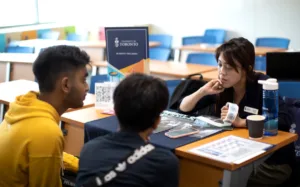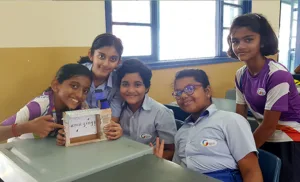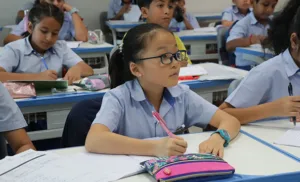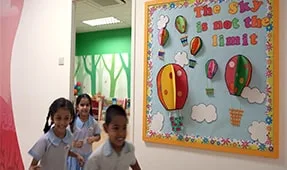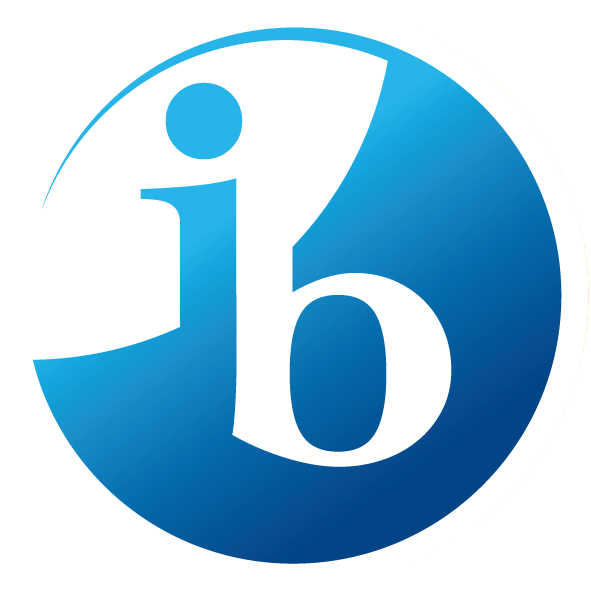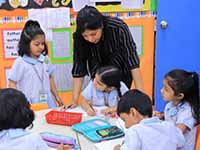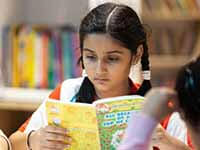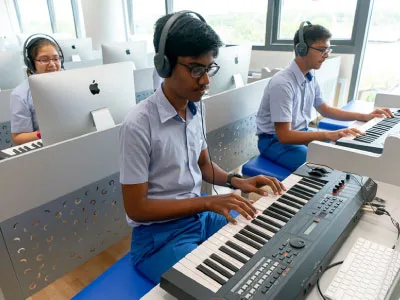According to the World Health Organization, life skills are the abilities required for ‘adaptive and positive behaviour’, empowering individuals to effectively navigate the challenges of daily life.” UNICEF characterises life skills as an approach focused on developing behaviour, aiming to strike a balance between knowledge, attitudes, and skills. In this blog, we’ll explore 10 such life skills that can have a positive impact on a child.
1. Communication skills
Effective communication is important for young learners for their language development, social interaction, self-expression and cognitive skills. Children use language to reason, and make sense of the world around them. Encourage your child to engage in discussions, express themselves confidently, and listen actively.
2. Self-management skills
Self-management, self awareness, self-evaluation are skills that can help young learners deal with their own daily challenges. This could simply mean finishing home assignments after school hours or using a gadget wisely. Encourage them to be creative, enjoy their own company, and develop a sense of independence.
3. Emotional intelligence
It is also important that children learn to recognise and manage their emotions as well as understand and empathise with the emotions of others. This skill helps them build healthier relationships and navigate social situations more effectively.
4. Navigating skills
Developing navigation skills early helps foster independence. Learning about maps and directions enhances spatial awareness of young learners. It helps children grasp concepts like distance, location, and scale, which are valuable for understanding their surroundings and the world at large. These skills have real-life applications. As children grow, they will need to navigate public transportation and find their way in unfamiliar surroundings.
5. Critical thinking and problem solving
Critical thinking is the ability to analyse a situation objectively to form a judgement, thereby helping to come up with reasonable solutions. It is helpful if the child is able to assess the potential outcomes of their actions. Moreover, they should be capable of identifying alternative solutions and analysing their own, as well as the values of those in their surroundings.
6. Digital literacy skills
With the digital world at their fingertips, teaching children to consume online content mindfully is essential – helping them understand the difference between informative and mindless content. Early digital literacy opens educational doors, enhances creativity, and teaches online safety. Familiarity with digital tools empowers our students to become confident, responsible digital citizens in a tech-driven world.
7. Financial literacy skills
Introducing financial concepts early lays the foundation for responsible financial decision-making in later years. Children can grasp basic principles like spending, and sharing. Concepts like counting money, budgeting, and understanding income and expenditure help reinforce Math skills.
8. Empathy
Empathy is a fundamental social and emotional skill that helps children understand and connect with others on an emotional level. It helps children appreciate and respect diversity. It allows them to understand and accept people from different backgrounds, cultures, and perspectives.
9. Wellbeing skills
Wellbeing encompasses physical, emotional, and mental health. It ensures children develop in a balanced and wholesome manner, laying a strong foundation for their future growth. Wellbeing supports positive behaviour. Children who feel emotionally and physically well are more likely to exhibit good conduct, leading to them being more productive in school and in general.
10. Leadership skill
Leadership involves effective communication, including speaking, listening, and understanding others. These skills are essential for success in academics and personal relationships. Leadership roles come with responsibilities, teaching children the importance of accountability and reliability. They learn to take ownership of their actions.
Also read: How we plan the teaching and learning for IB PYP students at GIIS
IB Primary Years Programme at GIIS
Enrolling in the inquiry-based IB Primary Years Programme at GIIS Singapore, encourages and harnesses students’ natural curiosity, promoting active learning and improved knowledge retention. At GIIS, alongside classroom resources, experiential learning is prioritised, allowing students to engage directly with topics.
This student-centered approach emphasises knowledge, skills, and conceptual understanding. Inquiry-based learning cultivates evidence-based reasoning and problem-solving abilities, fostering the habit of asking questions and making observations to deepen learning.
If you are keen to learn more about IB PYP at GIIS, please feel free to contact our admissions counsellors.


